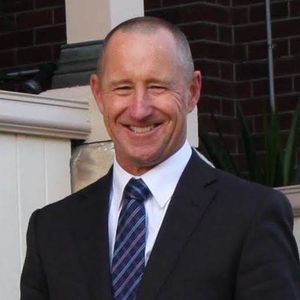Sex Education in a ‘Readily Available Pornography Cyberworld’
‘As a passing 4WD leaves its tracks in the soft, wet sand; so passing experiences imprint impressionable young minds (for both good and bad).’
‘New South Wales will be the first state to hold an inquiry into the impacts of pornography, especially on young people. A report last year from the eSafety Commissioner found that 75% of surveyed 16-18 year-olds had seen online pornography. Nearly one third of the group had seen it before the age of 13. This exposure comes at a crucial time in children's lives when they are developing attitudes about gender roles, sex and relationships.’ (Dr Tonkin ABC News, August 2024)
Pornography exposure – for young men at least – is at saturation point. Research has shown some worrying trends related to earlier onset exposure. There is a growing body of evidence demonstrating that children who view pornographic material are at risk of harm to their psychological development, perceptions of relationships, and general mental health.
In a past Mosman Prep ‘Empowering Parents’ event, we were privileged to be guided, as parents and educators, by Dr. Patricia Weerakoon. Patricia is a medical doctor, academic, sexologist, former sexual health lecturer (Sydney University), writer and speaker.
Patricia highlighted five research based parenting considerations that lead to confident, self-assured children who are able to maintain positive identity.
- Affection and love is spelt ‘time’ - being available and in their world.
- Affirmation - encourage and guide.
- Advice - explain the science.
- Authority - provide boundaries as protection.
- Accountability - discipline as discipling.
A child’s brain is vulnerable. It is in a state of very rapid development - five times more susceptible to external influence than the adult brain. It is constantly forming and reforming networks, largely influenced by input. The input will affect attitudes and behaviour.
Patricia asked some tough questions.
- Do you know what your children are feeding their brains?
- Do you know what they are watching and what is influencing them?
- Are you being a responsible parent?
As they approach maturity, the emotional brain of a child erupts like a volcano. It drives them towards independence, a move to another tribe, to their peers and social media. While this is an important part of growing up, the part of the brain that controls self-control and wise decisions doesn’t mature until the late 20s. It has a limited positioning system.
Patricia reinforced that parents are the positioning system. They have a critical role. Especially when it comes to sexuality, pornography and violent video games. They need to be media literate, to help their children be social media literate. They need to know what apps are and do. If they don’t know their children have them or don't know how they work, their children shouldn’t have them.
Chat rooms are an avenue into the sexual world and children are finding identity in pornography. We need to support them as they gain a healthy identity that doesn’t rest on social media.
Emphasise how precious their body is - teach them the beauty of their created goodness.
Pornography can become all that is attractive, teaching them the complete opposite of real life sexuality - that the body is a commodity, a throw away item. Instead of being in a relationship, sex is something to be done whenever they wish. They become desensitised.
What parents can do:
- It’s never too early to speak with your children and never too late.
- It’s a continuous conversation.
- Teach: values, beliefs and skills - be honest and unafraid.
- Talk and be a role model.
- Be proactive and reactive.
- Use intentional opportunities.
- Always look for gospel opportunities. The messages of the Bible are powerful in guiding healthy identity and relationships.
The rise of online pornography is incredibly destructive to our children and its worsening nature and addictive qualities are increasing concerns worldwide.
Our hope is that by continuing to raise awareness and provide tools and strategies on healthy sexual attitudes, children and parents will be empowered to have open conversations.
Peter Grimes | Headmaster
Finally, brothers and sisters, whatever is true, whatever is noble, whatever is right, whatever is pure, whatever is lovely, whatever is admirable—if anything is excellent or praiseworthy—think about such things. Philippians 4:8




















